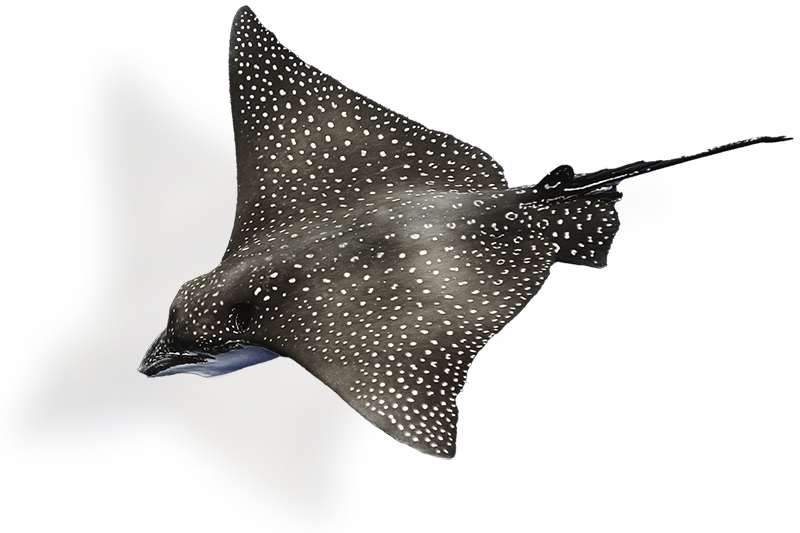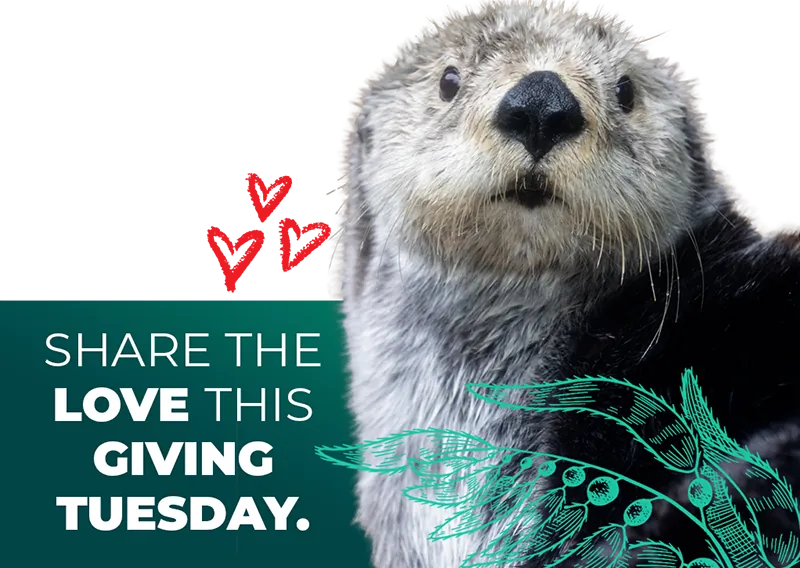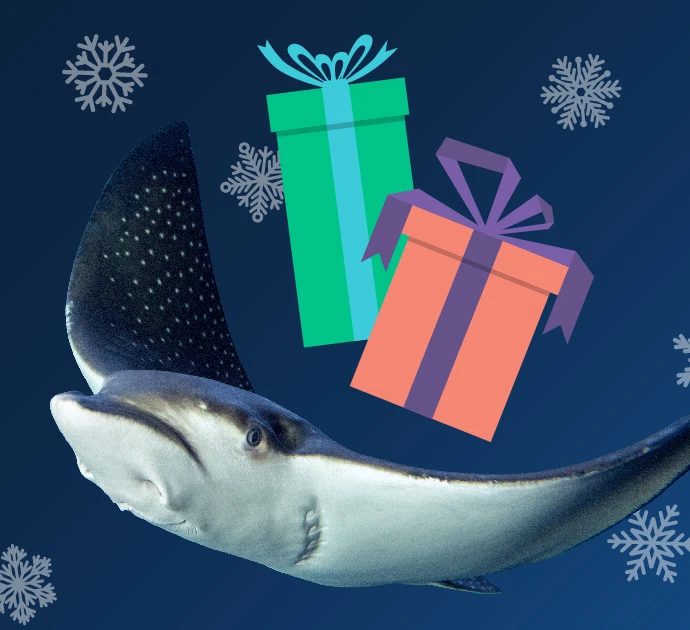The Seattle Aquarium has been working to reduce sources of plastic pollution in the environment—in 2020 we helped pass the Reusable Bag Bill to eliminate thin, single-use plastic bags in Washington state and in 2021 we worked with our partners to ban certain expanded polystyrene foam products like recreational coolers and packing peanuts.
This year, two of our top priorities for the 2023 Washington state legislative session aim to address the problems of recycling and packaging waste (SB 5154/HB 1131) and plastic pollution (HB 1085).
Modernizing and transforming our recycling system
The Washington Recycling and Packaging (WRAP) Act (SB 5154/HB 1131) will establish a producer responsibility program which will reduce unnecessary packaging and paper, fund statewide recycling services, and ensure that materials are actually recycled. Under producer responsibility, companies that make packaging are responsible for the costs, environmental impacts and end-of-life of their products, so the burden doesn’t fall on the end-customer or local government. It’s a proven, successful approach to increase package recycling and the norm in Canada and much of the European Union.
In 2021, Maine and Oregon became the first U.S. states to pass packaging producer responsibility legislation, and Colorado and California joined in 2022. Now, Washington has an opportunity to join them.
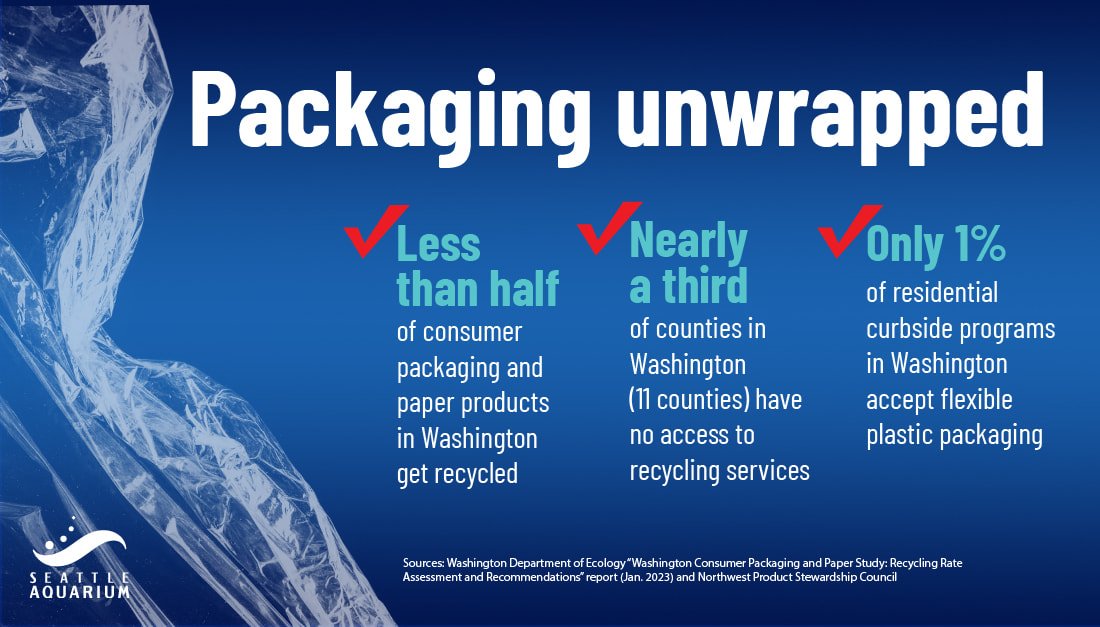
Walking the talk in our gift shop
The Seattle Aquarium’s gift shop, operated by our partner Event Network, has been working to reduce the hard-to-recycle packaging and unnecessary packaging waste they receive by reaching out to their individual vendors to collaborate on more sustainable alternatives. Here are a few examples of packaging switches that our gift shop has made so far:
- Eliminating and replacing plastic bags and plastic foam with eco-friendly or reusable alternatives.
- Removing plastic windows from cardboard boxes that are then recyclable.
- Eliminating “box-within-box” packaging—smaller, lighter-weight packages reduce emissions and pollution associated with transportation.
- Requiring items to be shipped between layers of recycled paper sheets instead of individually wrapped in plastic bags.
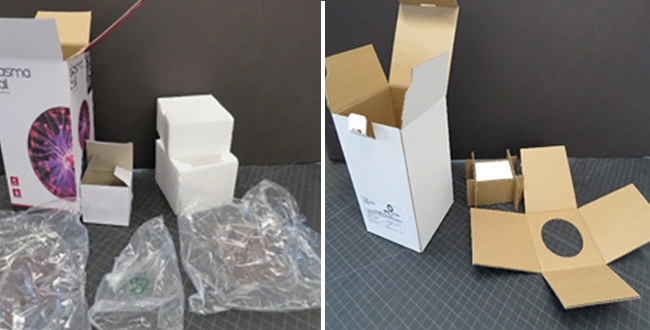
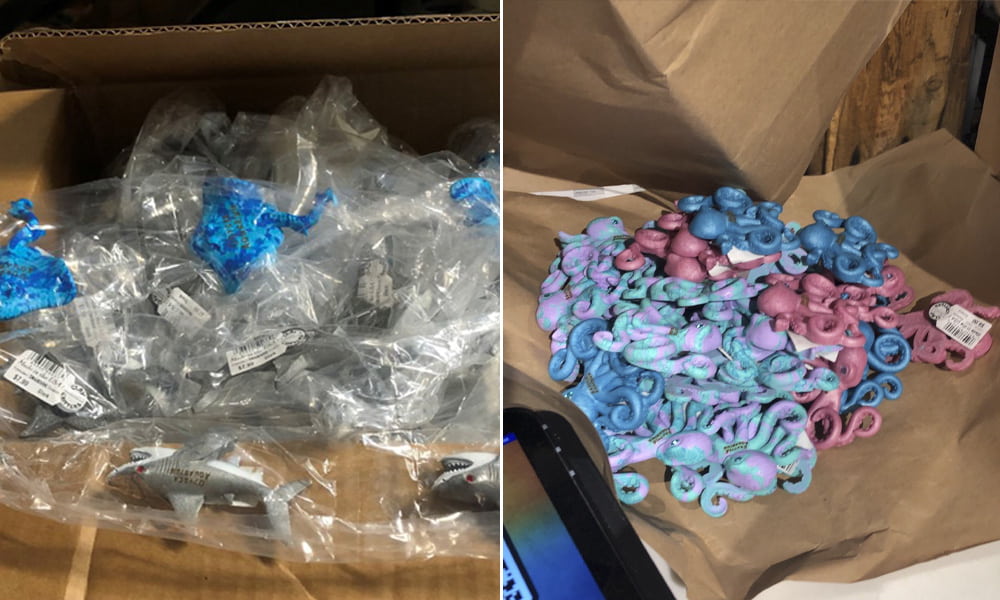
We’re so glad to have Event Network as a partner and sustainability champion, and we’re excited that they have managed to convince producers to switch more than 70 gift shop items to more sustainable packaging. But they have found this way of making change to be time-consuming and resource-intensive. That’s where the WRAP Act can help! The policies in the WRAP Act will address this problem more efficiently statewide by establishing incentives with graduated fees and requiring packaging producers to meet targets associated with things like reusability and recyclability.
Reducing sources of plastic pollution
HB 1085 will make tangible improvements in reducing plastic pollution by addressing three sources of unnecessary and hard-to-recycle plastic waste: single-use water bottles, mini plastic toiletries and thin-walled or soft-shelled foam-filled floats for docks. Read more about the sustainable alternatives required by this bill in our previous blog post on our 2023 Washington State Legislative Session policy priorities.
Take action!
- If you live in Washington, find your WA legislative district and urge your legislators to transform our recycling system by supporting the WRAP Act (SB 5151/HB 1131) and reduce plastic pollution by supporting HB 1085 in the 2023 session.
- Choose products with less packaging. Buy used instead of new whenever possible. Buy in bulk rather than singly packaged snacks and other items. Reward corporations that package responsibly.
- Check out our Act for the Ocean page for additional ways you can help the ocean and marine wildlife!
Thank you to the Washington state legislators who are fighting ocean plastic!
We thank Sen. Rolfes, Rep. Berry and Rep. Mena for being the lead sponsors of these bills to transform our recycling system and reduce plastic pollution, and we also extend our thanks to all of the co-sponsors.
